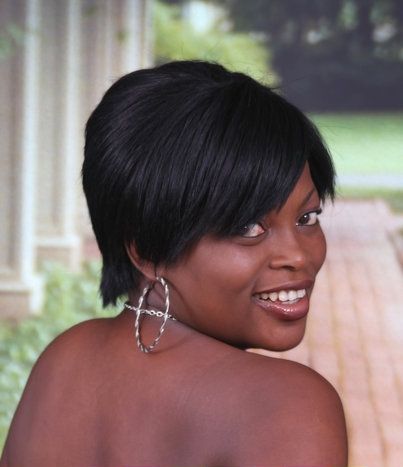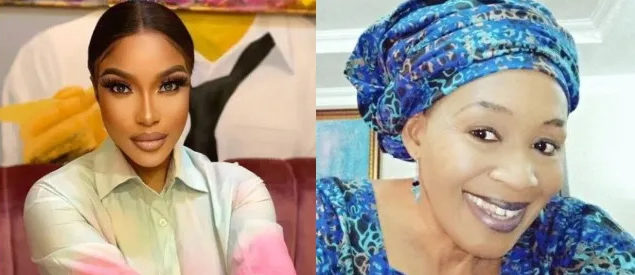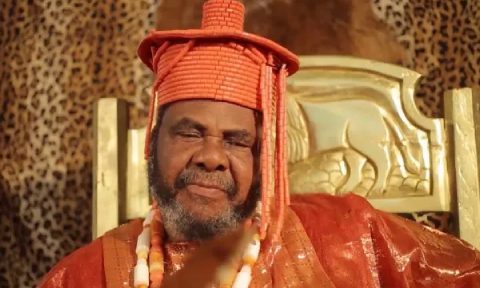
When a person lacks the power and trick to excel in wrestling, he gives the excuse that culture does not permit him to fight in another man‘s village. This Yoruba proverb appears to have governed the spirits of filmmakers from other African countries who came to Nigeria at the weekend and floored their Nigerian counterparts that competed with them in the ring of the African Movie Academy Awards held in Yenagoa, Bayelsa State.
In a show that questioned the touted supremacy of Nollywood and the entire film industry in Nigeria, which is the seat of AMAA, films from Kenya, South Africa and Uganda knocked out others produced in and by Nigerians, thus carting away golden prizes that include the Best Picture, Best Screen Play, Best Film in African Language and the Best Director awards.
Many Nigerian top acts including Olu Jacobs and wife, Joke, were present in the beautifully laid and heavily populated hall of Gloryland Cultural Centre, venue of the event, where the state Governor, Timpire Sylva, was the chief host. So also were Fred Amata, Paul Obazele, Ejike Asiegbu, Kunle Afolayan, Kate Henshaw, Patrick Doyle, Tunde Kelani and Mahmood Ali-Balogun. Alongside international stars like Danny Glover and Oscar award-winning Forest Whitaker, everyone watched helplessly as the non-Nigerian entries successfully dribbled their ways into the hearts of the 10-man international AMAA jury, which had insisted on quality stories and pragmatic attention to technical details and aesthetics as part of the criteria that define a winning film.
On the jury were Dr. Hyginius Ekwuazi, Ayoku Babu, Steve Ayorinde, Dorothy Wenner, Bernie Goldbatt, Shaibu Hussein, Keith Shiri, Hamida Suleiman and Asantewa Babu, amongst others.
In the end, while the Nollywood denizens remained on their seats, clapping most of the time, the visiting candidates endlessly climbed the stage as they collected the awards of their dreams. Particularly, the producer of From a Whisper, a Kenyan that swept five choice prizes, could not stop thanking the stars around the comet of the movie about which the jury endlessly poured encomiums. It won the Best Director, Best Picture, AMAA Achievement in Editing and Best Original in Soundtrack, beating the likes of Reloaded, Battle of the Soul, Jenifa, Modupe Temi, Arugba, Through the Glass and Beautiful Soul.
The feat shattered the forecast of pundits who had felt that Nigeria was once again poised to rule the continent, based on how its films stood conspicuously on the chart of the AMAA nomination released during the Pan African Festival of Cinema and Television Award held in Oagadougu, Burkina Faso about a month earlier. But because the game is not that of number but professionalism, From a Whisper stole the show, while Egyptian Seventh and Heaven, South Africa‘s Gugu Andile also won in other categories.
Although ace cinematographer, Tunde Kelani, who is generally respected for his comparative painstaking culture in film making, won the Best Costume with his Arugba, and the all-Nigerian Heart of Africa (now Good People?) award at the AMAA ‘09, he was realistic and courageous enough to acknowledge the slump of Nigerian films, and the challenge that the victory of the other African works spelt for him and his compatriots.
”AMAA has created a platform for African films to express themselves,” he said. ”But the competition is not a matter of life and death. What I want to assure our brothers from other African counties is that in 2010, we will be ready for you.”
Well, part of the consolation for Nigeria is that while Funke Akindele won the Best Performance by an Actress in a Leading ole, with Mercy Johnson winning Best Performance in a Supporting Role, Michelle Bello‘s Small Boy captured the AMAA Achievement in Art Direction just as Izu Ojukwu‘s Cindy‘s Note won AMAA Achievement in Cinematography.
While the AMAA ‘09 has, however, lived up to its own promise, its organisers must always continue to improve on logistics. In the face of pressure, the crowd the gatekeepers allowed into the hall was beyond capacity. As a result, there were hiccups at the far back where those who had to stand were obstructing the views of some of those who had secured seats, with some soldiers having to come in to enforce order in their own way.
Also, communication between presenters and people called to give awards should be improved upon in subsequent editions. The slow response of some of them gave the masters of ceremonies – Julius Agwu, Kate Henshaw and Ghanaian Kofi Bucknor – a great battle as they had to improvise jokes of mixed tastes at some points. In an international affair like the AMAA‘s, precision should be the rule of the game.
And that is why Peace Anyiam-Osigwe may also have to oil the ribs of its implementation/logistics committee towards achieving further excellence. Where necessary, professionals must be engaged in key areas to, for instance, avoid a communication break down that led to confusion at the air port in Port Harcourt when too many AMAA delegates/visitors struggled to make a 3 pm flight back to Lagos. Had the people in charge given necessary information as due, some of the delegates would have gone with the 8 am flight for which the plane available was said to be under-booked.
Indeed, one thing that AMAA appears to have achieved in the five years of its existence is its having sent the signal to Nollywood that the business can not continue the way it had been done. Apart from having achieved a tourism base for Bayelsa, it has reminded Nigerian film makers of the arrested growth the industry has suffered in the past few years, largely due to professional lethargy that many people have acknowledged.
And the need to up the game formed the basis of Whitaker‘s message for film makers at AMAA.
”You must get the story right,” he said. ”Once you have a good story, and the aesthetics is right, people will like to see the film.”
AMAA‘s sponsors – Bayelsa government and UBA – did not only stand by it, they also pledged further support in future episodes.
According to Sylva, the awards afford the state an opportunity to express its interest in tourism and film development.
”AMAA gives all Africans the opportunity to sit together to enjoy and reflect on the development of the film industry,” he said, while beckoning practitioners to come to the state to make films.
For Anyiam-Osigwe, who was commended by many, including the governor, Whitaker and Glover, it was a time to renew the AMAA pledge to work for a roundly developed film industry in Africa.
”We need to correct wrong media pictures about us. For us to send the right messages about us, we need to do the right films,” she said.



















